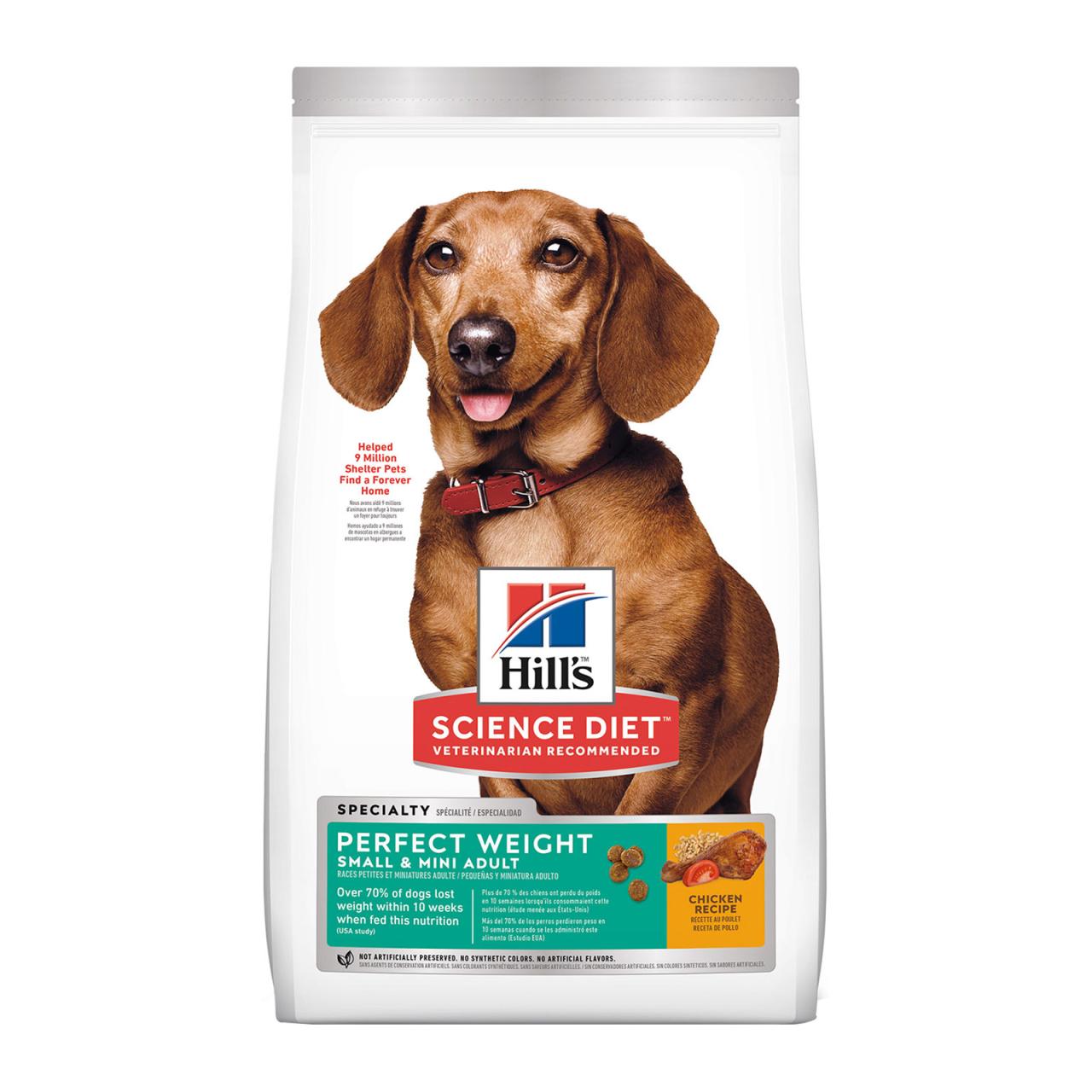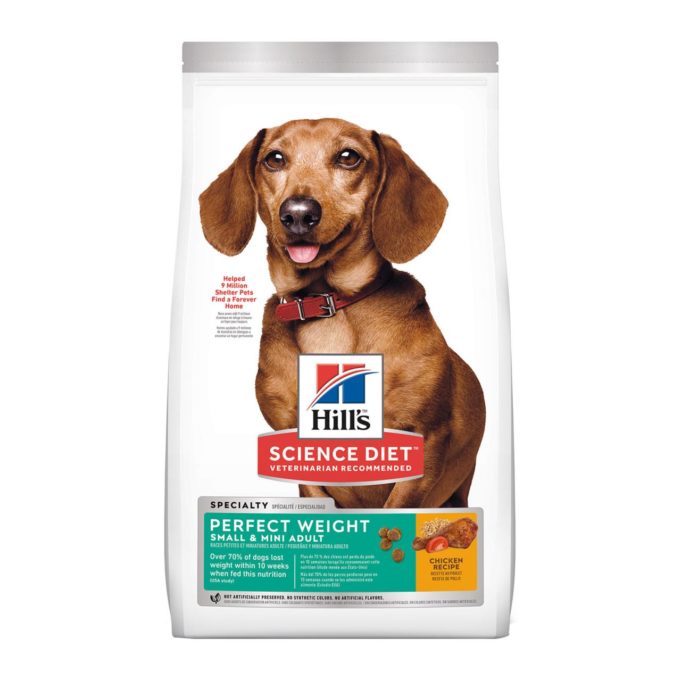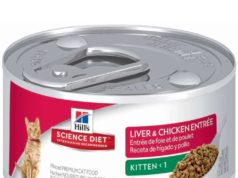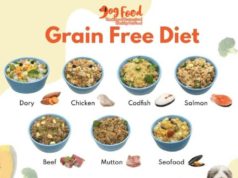Is Science Diet a good dog food? This question has been bouncing around dog owner circles for years, and like a well-trained canine, we’re here to sniff out the truth. Science Diet, with its name hinting at scientific precision, has become a household name in the dog food industry.
But does it truly live up to its promise of providing optimal nutrition for our furry friends? Join us as we delve into the ingredients, nutritional profiles, and real-world experiences to see if Science Diet truly earns its place in your dog’s bowl.
Science Diet, a product of Hill’s Pet Nutrition, has been around since 1939, boasting a long history of catering to canine needs. Their mission is to provide scientifically formulated food for dogs of all ages, breeds, and lifestyles. From puppies just learning to walk to senior dogs with unique dietary requirements, Science Diet aims to address the specific needs of each stage of life.
But with so many brands on the market, does Science Diet stand out from the pack? Let’s find out.
Science Diet Overview
Science Diet, a brand owned by Hill’s Pet Nutrition, has been a mainstay in the pet food industry for over 75 years. They pride themselves on being a science-driven company, focusing on providing nutritionally complete and balanced food for pets of all ages and breeds.
Their mission is to help pets live longer, healthier lives through advanced nutrition.
Target Audience
Science Diet targets a wide range of pet owners, from those with puppies and kittens to senior dogs and cats. Their products cater to various needs, including weight management, sensitive stomachs, joint health, and specific breed requirements. They offer a diverse range of formulas to meet the unique nutritional needs of different pets.
Key Features and Benefits
Science Diet’s products are formulated by veterinary nutritionists and are backed by extensive research and clinical trials. Some of the key features and benefits include:
- High-Quality Ingredients:Science Diet uses premium ingredients, including real meat and poultry, as well as fruits, vegetables, and whole grains. They strive to use ingredients that are easily digestible and support optimal health.
- Balanced Nutrition:Science Diet formulas are designed to provide the essential nutrients that pets need for healthy growth, development, and maintenance. They offer a balanced blend of protein, carbohydrates, fats, vitamins, and minerals, tailored to different life stages and health needs.
- Variety of Formulas:Science Diet offers a wide variety of formulas to meet the specific needs of different pets. They have formulas for puppies, adult dogs, senior dogs, weight management, sensitive stomachs, joint health, and specific breed requirements.
- Scientifically Backed:Science Diet’s products are backed by extensive research and clinical trials. They work with veterinary nutritionists and conduct studies to ensure their formulas meet the highest standards of nutritional quality and safety.
Ingredient Analysis

Let’s dive into the nitty-gritty of what’s in Science Diet dog food. We’ll analyze the key nutrients, explore potential allergens, and compare their ingredient quality to other brands.
Key Nutrients
Science Diet aims to provide a balanced diet for dogs, focusing on essential nutrients like protein, fat, carbohydrates, vitamins, and minerals. Here’s a breakdown of the key nutrients you’ll find in most Science Diet formulas:
- Protein:Science Diet uses a variety of protein sources, including meat, poultry, fish, and plant-based options like soy and peas. The protein content varies depending on the specific formula, but generally ranges from 20% to 30%.
- Fat:The fat content also varies depending on the formula, but typically falls between 10% and 20%. Science Diet uses a combination of animal and vegetable fats to provide essential fatty acids like omega-3 and omega-6.
- Carbohydrates:Science Diet formulas typically include carbohydrates from sources like grains (like rice, corn, and barley), vegetables, and fruits. The carbohydrate content is usually around 30% to 40%.
- Vitamins and Minerals:Science Diet formulas are fortified with essential vitamins and minerals, including vitamin A, vitamin D, vitamin E, vitamin K, thiamine, riboflavin, niacin, calcium, phosphorus, and potassium. These nutrients are important for maintaining overall health and supporting various bodily functions.
Common Allergens and Sensitivities
Some dogs are sensitive to certain ingredients commonly found in dog food. Here’s a look at some common allergens and sensitivities that you might encounter in Science Diet formulas:
- Chicken:Chicken is a common protein source in many dog foods, including Science Diet, and it can be a common allergen for some dogs.
- Beef:Beef is another popular protein source, and some dogs may be sensitive to it.
- Dairy:Dairy products, like milk and cheese, can be difficult for some dogs to digest and may trigger allergies.
- Soy:Soy is a common plant-based protein source in dog food, and some dogs may be sensitive to it.
- Grains:Grains, like wheat, corn, and barley, are often used in dog food to provide carbohydrates. Some dogs may have sensitivities to these grains.
Ingredient Quality and Sourcing
Science Diet emphasizes using high-quality ingredients. They source their ingredients from reputable suppliers and have a strict quality control process.However, there’s a debate about the overall quality of their ingredients compared to other brands. Some argue that Science Diet uses ingredients that are not as high-quality as those used in some premium brands.
For example, some Science Diet formulas include by-products, which can include parts of the animal that aren’t typically considered premium ingredients. Here’s a quick comparison of Science Diet’s ingredient quality and sourcing to other brands:
| Brand | Ingredient Quality | Sourcing Practices |
|---|---|---|
| Science Diet | Good, but may include by-products | Reputable suppliers, strict quality control |
| Purina Pro Plan | Good, typically uses higher-quality protein sources | Reputable suppliers, strict quality control |
| Royal Canin | Excellent, often uses premium ingredients | Reputable suppliers, strict quality control |
| Blue Buffalo | Excellent, emphasizes natural ingredients and avoids by-products | Reputable suppliers, strict quality control |
Ultimately, the quality of the ingredients in Science Diet dog food is a matter of opinion. Some dog owners find their ingredients to be perfectly acceptable, while others prefer brands that use higher-quality ingredients.
Nutritional Considerations
Science Diet aims to provide complete and balanced nutrition for dogs at different life stages. To achieve this, the brand carefully formulates its dog food recipes with specific nutritional profiles tailored to the unique needs of puppies, adults, seniors, and even dogs with specific health concerns.
Nutritional Profiles for Different Life Stages
The nutritional needs of dogs vary depending on their age, activity level, and overall health. Science Diet recognizes these differences and offers a wide range of formulas designed to meet the specific requirements of each life stage.
- Puppy Formulas:Puppy formulas are typically higher in protein and fat to support rapid growth and development. They also contain essential nutrients like calcium and phosphorus for strong bones and teeth, as well as DHA for brain development.
- Adult Formulas:Adult formulas are designed to maintain optimal health and energy levels.
They provide a balanced ratio of protein, fat, and carbohydrates to support muscle mass, energy needs, and overall well-being.
- Senior Formulas:Senior formulas are formulated to address the specific needs of aging dogs. They often contain lower calorie levels to help manage weight, as well as joint support ingredients like glucosamine and chondroitin to maintain mobility.
- Weight Management Formulas:For dogs struggling with weight, Science Diet offers formulas with reduced calorie and fat content to help promote healthy weight loss. These formulas often contain high-fiber ingredients to increase satiety and promote a feeling of fullness.
- Specific Health Concern Formulas:Science Diet also offers specialized formulas for dogs with specific health concerns, such as kidney disease, urinary tract health, or sensitive stomachs.
These formulas are formulated with ingredients and nutrients specifically designed to address these conditions.
Comparison with Other Brands
To understand how Science Diet stacks up against other brands, it’s helpful to compare the protein, fat, and carbohydrate content of their formulas. While specific values can vary depending on the formula, here’s a general overview:
- Protein:Science Diet formulas typically contain moderate levels of protein, ranging from 20% to 30% for adult formulas. This is comparable to other premium brands like Purina Pro Plan and Royal Canin.
- Fat:The fat content in Science Diet formulas varies depending on the life stage and activity level.
For adult formulas, it typically ranges from 10% to 15%, which is again comparable to other premium brands.
- Carbohydrates:Science Diet formulas typically contain a moderate amount of carbohydrates, often derived from grains like rice and corn. While some dog owners prefer lower-carbohydrate options, the carbohydrate content in Science Diet is generally within the acceptable range for most dogs.
Essential Vitamins, Minerals, and Antioxidants
Science Diet formulas are fortified with essential vitamins, minerals, and antioxidants to support overall health and well-being. These nutrients play crucial roles in various bodily functions, including:
- Vitamins:Vitamin A for vision and immune function, Vitamin D for calcium absorption and bone health, Vitamin E for antioxidant protection, Vitamin K for blood clotting, and B vitamins for energy metabolism.
- Minerals:Calcium and phosphorus for strong bones and teeth, magnesium for muscle function and nerve transmission, potassium for electrolyte balance, and iron for oxygen transport.
- Antioxidants:Antioxidants help protect cells from damage caused by free radicals. Science Diet often includes ingredients like vitamin E, selenium, and lutein for antioxidant support.
Dog Health and Well-being
Science Diet boasts a range of formulas designed to cater to specific dog breeds and health conditions, promising tailored nutrition for optimal well-being. While not a magic bullet, Science Diet can offer certain benefits for your furry friend.
Benefits for Specific Breeds
Science Diet offers specialized formulas for various breeds, taking into account their unique nutritional needs. For instance, the “Science Diet Adult Small Bites” is formulated for smaller breeds, considering their smaller mouths and higher metabolic rate. This formula helps maintain ideal weight and provides targeted nutrients for optimal health.
- Large Breeds:Formulas like “Science Diet Adult Large Breed” are specifically designed for larger dogs, addressing their specific needs for joint health, bone strength, and muscle development. These formulas typically include glucosamine and chondroitin, known to support joint health and mobility.
- Senior Dogs:“Science Diet Senior” formulas are formulated to address the nutritional requirements of aging dogs, promoting healthy aging and addressing common concerns like reduced energy levels, weight management, and cognitive function.
Benefits for Specific Health Conditions
Science Diet offers formulas for dogs with specific health conditions, aiming to support their well-being and manage their needs.
- Weight Management:“Science Diet Weight Management” formulas are designed to help dogs shed excess pounds, offering reduced calories and increased fiber to promote satiety and weight loss. These formulas also contain L-carnitine, an amino acid that helps convert fat into energy.
- Sensitive Stomachs:“Science Diet Sensitive Stomach” formulas are designed for dogs with sensitive digestive systems. They typically contain easily digestible ingredients, prebiotics to support gut health, and reduced levels of potential allergens.
- Urinary Tract Health:“Science Diet Urinary Tract Health” formulas are formulated to help maintain urinary tract health in dogs prone to urinary tract infections (UTIs). These formulas often include ingredients like cranberries, which are known for their urinary tract health benefits.
Research and Studies
While Science Diet often cites its own internal research and studies, independent research on the effectiveness of specific formulas is limited. Some studies have shown positive results in specific areas, such as weight management and joint health, but more comprehensive and independent research is needed for definitive conclusions.
Drawbacks and Limitations
While Science Diet offers a range of formulas, it’s important to remember that every dog is unique. What works for one dog may not be suitable for another. Here are some potential drawbacks and limitations to consider:
- Ingredient Quality:Some critics argue that Science Diet uses lower-quality ingredients compared to some other premium brands. This can include the use of meat by-products and fillers, which may not be as nutritionally dense as whole meats.
- Potential Allergies:Like any dog food, Science Diet can contain ingredients that some dogs may be allergic to. It’s crucial to carefully read the ingredient list and monitor your dog for any signs of allergies, such as itching, digestive upset, or skin problems.
- Price:Science Diet can be more expensive than some other dog food brands, particularly when compared to generic brands. This can be a significant factor for budget-conscious pet owners.
Consumer Reviews and Opinions
The internet is a treasure trove of opinions, and Science Diet dog food is no exception. To get a real sense of what dog owners think, we delved into the vast world of online reviews. From the glowing praise to the critical critiques, we’ve compiled a snapshot of what dog owners are saying about Science Diet.
Common Pros
The positive reviews often highlight Science Diet’s reputation for quality ingredients and its focus on meeting the specific needs of different dog breeds and life stages. Here are some of the common pros reported by dog owners:
- Improved Coat and Skin:Many owners rave about the noticeable improvement in their dog’s coat and skin health after switching to Science Diet. This is often attributed to the inclusion of high-quality protein sources and essential fatty acids in the formula.
- Increased Energy Levels:Science Diet is frequently praised for boosting energy levels in dogs, especially those who are active or require extra fuel for their daily routines. This is likely due to the balanced combination of carbohydrates, proteins, and fats in the food.
- Digestive Health:Many owners report that their dogs experience improved digestion after switching to Science Diet, with less gas, bloating, and diarrhea. This could be attributed to the inclusion of prebiotics and probiotics in some formulas, which support a healthy gut microbiome.
- Variety of Formulas:Science Diet offers a wide range of formulas tailored to different breeds, ages, and health conditions. This allows owners to choose a food that specifically meets their dog’s individual needs.
- Availability:Science Diet is widely available in pet stores and online retailers, making it convenient for dog owners to purchase.
Common Cons
While many owners have positive experiences with Science Diet, there are also some common concerns and criticisms:
- Ingredient Quality:Some owners express concerns about the quality of certain ingredients used in Science Diet, particularly the inclusion of by-products and artificial preservatives.
- Palatability:Not all dogs are fans of Science Diet’s taste. Some owners report that their dogs are picky eaters and find the food unappealing.
- Price:Science Diet can be relatively expensive compared to other dog food brands. This can be a barrier for some owners, especially those on a tight budget.
- Allergic Reactions:Some dogs experience allergic reactions to certain ingredients in Science Diet, leading to skin issues, digestive problems, or other health complications.
Recurring Issues and Concerns
A few recurring issues and concerns emerge from the reviews, suggesting areas where Science Diet could improve:
- Transparency in Ingredient Sourcing:Some owners express a desire for greater transparency regarding the sourcing of ingredients used in Science Diet. They want to know more about the origins of the meat and other components in the food.
- Reduction of Artificial Ingredients:Many owners are increasingly seeking dog food with fewer artificial ingredients, including preservatives, colors, and flavors. They believe that natural ingredients are better for their dogs’ health.
- Customer Service:Some owners have reported issues with customer service, including difficulty contacting representatives or getting timely responses to inquiries.
Cost and Availability
Science Diet dog food is generally considered a premium brand, which means it’s priced higher than many other options on the market. However, the price can vary depending on the specific formula, size of the bag, and where you purchase it.Let’s delve into the cost of Science Diet compared to other brands, its availability in different retail locations, and how its value proposition aligns with its price.
Cost Comparison
Science Diet dog food is typically more expensive than budget-friendly brands like Purina Dog Chow or Pedigree. However, it’s often priced lower than other premium brands such as Royal Canin or Eukanuba. The cost of Science Diet can fluctuate depending on the formula and size of the bag.
Science Diet is a popular brand, but like any dog food, it’s best to consult your vet. If you’re looking to trim your pup’s waistline, though, maybe you should be checking out the best diet for weight loss for humans.
After all, a leaner owner means more walks for your furry friend, right? And remember, a happy dog is a healthy dog, no matter what brand of kibble they’re chowing down on.
For instance, a 30-pound bag of Science Diet Adult Healthy Weight formula could range from $40 to $60, while a 30-pound bag of Science Diet Puppy formula might cost between $50 and $70. To get a better understanding of the cost comparison, let’s examine a few popular brands and their approximate prices for a 30-pound bag:
- Science Diet Adult Healthy Weight:$40 – $60
- Purina Dog Chow:$20 – $30
- Pedigree:$15 – $25
- Royal Canin:$60 – $80
- Eukanuba:$45 – $65
Availability
Science Diet dog food is widely available in various retail locations across the United States and internationally. You can typically find it at:
- Pet Stores:PetSmart, Petco, and other specialty pet stores usually carry a wide range of Science Diet products.
- Grocery Stores:Many large grocery chains, such as Kroger, Safeway, and Walmart, also stock Science Diet dog food.
- Online Retailers:Amazon, Chewy, and other online retailers offer convenient options for purchasing Science Diet, often with competitive prices and delivery services.
- Veterinarian Offices:Some veterinarians may sell Science Diet directly, and you can often find it recommended by vets for specific dietary needs.
Value Proposition
Science Diet’s value proposition lies in its focus on using high-quality ingredients and providing formulas tailored to specific dog breeds and life stages. The brand prides itself on using science-backed research to develop its products, aiming to meet the unique nutritional needs of dogs.
However, the value proposition is subjective and depends on individual priorities and budget constraints. While Science Diet offers high-quality ingredients and formulas, some dog owners may find its price point prohibitive. Ultimately, the decision of whether Science Diet represents good value for money depends on the individual dog owner’s budget, priorities, and their dog’s specific needs.
Science Diet? It’s like the fancy pants food for dogs, but honestly, I’m not sure if it’s worth the extra scratch. If you’re looking to cut back on your pup’s kibble budget, maybe try a different brand. But if you’re looking to cut back on your own kibble budget, you might want to check out some tips on how to diet.
After all, you’re the one who’s going to be buying all that fancy dog food, right? Maybe just skip the Science Diet and focus on your own diet – your dog will be fine with whatever you give him, as long as it’s not a whole pizza.
Alternative Dog Food Options: Is Science Diet A Good Dog Food
If you’re looking for a change of pace from Science Diet, there’s a whole world of dog food out there waiting to be explored. Don’t worry, we’re not suggesting you go rogue and start feeding your furry friend table scraps (though, we all know they’d love it).
We’re talking about reputable brands with high-quality ingredients and nutritional profiles that rival Science Diet.
Alternative Dog Food Brands
There are a plethora of brands out there, each with its own unique blend of ingredients and nutritional focus. Here’s a rundown of some popular contenders:
- Purina Pro Plan:A well-known brand with a range of formulas for different breeds and life stages. They emphasize high-quality protein sources and balanced nutrition.
- Royal Canin:This brand is known for its breed-specific formulas, catering to the unique needs of different dog breeds. They also offer formulas for various life stages and health conditions.
- Hill’s Science Diet:While we’re focusing on alternatives, Hill’s Science Diet is still a reputable brand with a strong focus on nutritional science. Their formulas are designed to address specific health concerns and needs.
- Eukanuba:Eukanuba boasts high-quality protein sources and prebiotics to support gut health. They offer a wide range of formulas, including options for active dogs and those with sensitive stomachs.
- Blue Buffalo:Known for its focus on natural ingredients, Blue Buffalo offers a variety of formulas with no artificial flavors, colors, or preservatives.
Key Features and Benefits
- Ingredient Quality:Some brands prioritize using high-quality protein sources like real meat, poultry, or fish, while others emphasize natural ingredients with limited artificial additives.
- Nutritional Profiles:Different brands cater to specific dietary needs, such as weight management, senior health, or active lifestyles. They may offer formulas with higher protein levels, lower calorie content, or specific nutrient blends.
- Digestibility:Some brands focus on formulas that are easily digestible, particularly beneficial for dogs with sensitive stomachs.
- Price and Availability:Price points can vary significantly between brands, and some brands may be more readily available in certain regions.
Pros and Cons of Choosing Alternatives
- Pros:
- Wider Range of Options:You have more flexibility to find a formula that aligns perfectly with your dog’s specific needs and preferences.
- Potential for Better Ingredients:Some alternative brands may use higher-quality ingredients or prioritize natural ingredients.
- Unique Formulas:You can find formulas tailored to specific breeds, life stages, or health concerns.
- Cons:
- Higher Cost:Some alternative brands can be more expensive than Science Diet.
- Limited Availability:Some brands may not be readily available in all areas.
- Trial and Error:Finding the right alternative for your dog may require some experimentation.
Feeding Guidelines and Recommendations
Science Diet provides specific feeding guidelines for its dog food products, tailored to factors like age, breed, activity level, and individual dog needs. These guidelines are designed to help you provide the right amount of food to keep your dog healthy and at an ideal weight.
Feeding Guidelines
Science Diet’s feeding guides are typically found on the back of the food bag or on their website. These guides provide a range of daily food recommendations based on your dog’s weight. For example, a 10-pound dog might be recommended to eat 1/2 to 3/4 cup of food per day, while a 50-pound dog might need 2 to 3 cups.
Is Science Diet a good dog food? That’s a question for the canine nutritionists, but if you’re looking to shed a few pounds yourself, check out this free diet plan for weight loss. After all, a healthy human can better care for a healthy dog, right?
Now, back to Science Diet…
It’s important to remember that these are just general guidelines, and your dog’s individual needs may vary.
Sample Feeding Schedule, Is science diet a good dog food
Here’s a sample feeding schedule for a medium-sized, active adult dog:* Morning:1 cup of Science Diet food
Evening
1 cup of Science Diet foodThis schedule can be adjusted based on your dog’s activity level and weight. If your dog is very active, you may need to increase the amount of food you give them. If your dog is less active, you may need to decrease the amount of food you give them.
Monitoring Your Dog’s Weight
Monitoring your dog’s weight is crucial for their overall health. Regularly weighing your dog, ideally once a week, can help you identify any weight changes. If your dog is gaining weight, you may need to reduce the amount of food you give them.
If your dog is losing weight, you may need to increase the amount of food you give them. You can also consult with your veterinarian for personalized recommendations.
Ultimate Conclusion
The world of dog food can be a minefield, with so many options and opinions swirling around. Ultimately, the decision of what to feed your dog is a personal one, taking into account their individual needs and preferences. Science Diet, with its long history, scientific backing, and diverse product line, certainly has a place at the table.
However, remember to always consider the individual needs of your furry companion and consult with your veterinarian to ensure you’re providing the best possible nutrition for their happy, healthy life.
FAQ Compilation
Is Science Diet good for all dogs?
While Science Diet offers a variety of formulas, not every dog will thrive on the same diet. It’s crucial to consider your dog’s breed, age, activity level, and any health conditions they may have.
What are the most common complaints about Science Diet?
Some dog owners report issues with palatability (dogs not liking the taste), potential for allergies, and the cost compared to other brands.
Is Science Diet better than other brands?
There is no definitive answer as “best” is subjective. Compare Science Diet’s ingredients, nutritional profiles, and pricing to other brands to find the best fit for your dog.
























